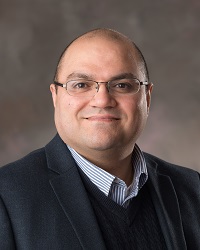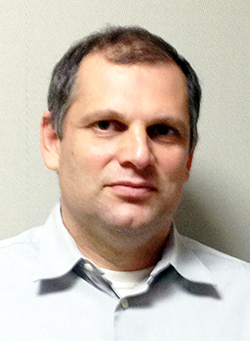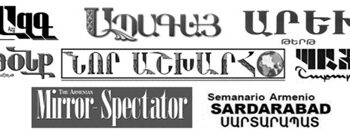BELMONT, Mass. — On Saturday, January 21, the National Association for Armenian Studies and Research (NAASR) hosted a virtual panel discussion to analyze why the current blockade of Artsakh has received such a tepid response in the Western media.
The four panelists were Prof. Bedross Der Matossian of the University of Nebraska, an expert on Ottoman and modern Middle East history; David L. Phillips, the director of the Program on Peace-Building and Rights at Columbia University’s Institute for the Study of Human Rights; Lara Setrakian, journalist and president of the Applied Policy Research Institute in Yerevan (APRI-Armenia); and Prof. Henry Theriault, a leading genocide scholar, of Worcester State University.
Marc Mamigonian, NAASR’s director of academic affairs, and Prof. Christina Maranci, the Mashtots Chair of Armenian Studies at Harvard as well as president of the Society for Armenian Studies (SAS), served as co-moderators of the panel.

Der Matossian: Academia Needs to be Better Informed
Der Matossian spoke about the academic community’s role. Stating that “The silence of the academic community is astonishing,” in regard to the current blockade, Der Matossian went on to speak of academia’s response to the 2020 war. He, as head of the SAS, had approached the Middle East Studies Association (MESA) to make a statement on the war, but they failed to do so. He attributes the silence to the “marginalization of things Armenian in Middle Eastern Studies” due to three main factors: ambivalence, ignorance and Turkish propaganda. He added that even many Middle Eastern scholars are unclear about who the Armenians are and where they live.
In terms of the broader academic world, Der Matossian gave several reasons for why the conflict is being ignored. He mentioned that Artsakh is not geographically close to Europe, and the conflict has become similar to other “non-relevant” conflicts in the East, like the crisis in Yemen. He rattled off other possible reasons, including successful Azerbaijani propaganda, racism against Armenians as being “not white” and therefore of less relevance, the overwhelming focus on the war in Ukraine, Armenia being in “Russia’s neighborhood”, and finally, the feeling that the West has already “paid their dues” to the Armenians by recognizing the Genocide.
Der Matossian suggested that academics write statements protesting the blockade and get prominent scholars to sign off on them; that they write to human rights groups and urge them to act; that they spread awareness on social media and write to major newspapers, but to not waste time addressing the Armenian community. The academic world needs to be on alert that there is impending genocide in the region. Der Matossian also referenced an academic from Armenia, Suren Manukyan, who stated that “if we raise the Artsakh question to the level of Genocide recognition, we will get results,” but pointed out that the recognition issue took decades.
Phillips: World Should Stop Second Armenian Genocide
Phillips, a noted expert on human rights and international affairs, is a former senior adviser to the US State Department who served during the Clinton, Bush, and Obama administrations; he has also served as director or leading member of numerous university-based programs and independent organizations focusing on human rights, conflict resolution, international affairs, foreign policy, and Middle East affairs in particular. He has also been a past executive director of the Elie Wiesel Foundation. In his current role at Columbia, he oversees the “Artsakh Atrocities Project” which includes extensive documentation of war crimes and humanitarian violations perpetrated in Artsakh by the Azeri authorities.
Phillips pulled no punches in describing the situation in Artsakh as the second Armenian Genocide. He stated that “the recent events in Artsakh not only represent clear violations of international humanitarian law and human rights abuses, but they are furthermore an attempt to purge Artsakh of its Armenian population, and to enslave Armenians in Artsakh to Azerbaijan’s agenda and will. And unless the international community responds to that and is clear in drawing a line that highlights the problems and the crisis, the situation will get worse, not improve.”
“Second Armenian Genocide” is an appropriate term, he said, because the blockade of the Lachin Corridor “is a clear violation of IHL [International Humanitarian Law],” due to cutting off the goods and services which the people of Artsakh need for daily life, such as food, fuel, and medication.
Phillips further commented on Azerbaijan’s buildup of weaponry just before the invasion, stating that “Azerbaijan was essentially armed to the teeth.” He noted that Azerbaijan was fully supported by Turkey, with weapons originally supplied by the US and, according to eyewitnesses, Turkish troops that were deployed near the Iranian border. He also opined that Turkey’s wish to be a co-chair of the Minsk Group is “totally unreasonable and impossible” because Turkey is “a protagonist in the conflict,” also mentioned Turkey’s ongoing blockade of Armenia.
In regard to the supposed “environmentalist protestors” who are causing the blockade, Phillips stated, “let me just say clearly and plainly, that this claim is a farce. There is no independent civil society in Azerbaijan. Facial recognition software matched the photos of protestors with members of Azerbaijan’s security services.” He went on to criticize US National Security Advisor Jake Sullivan for calling on Armenia and Azerbaijan to resolve their differences bilaterally. Phillips stated that this is not an acceptable suggestion, as “we all know from experience the importance of international mediation and especially, the importance of US engagement.”
Phillips then suggested “practical steps” that could be taken to end the crisis. He stated that the Nagorno-Karabakh Republic should have a seat at the table during the Organization for Security and Cooperation in Europe (OSCE) Minsk Group negotiations. The Biden Administration should rescind its waiver of Section 907, prohibiting military aid to Azerbaijan, until Azerbaijan lifts its blockade. International monitors should be deployed to Artsakh to witness Azerbaijan’s aggression, and their reports should be forwarded to the European Commission, the European Parliament, and policymakers in the US and Canada. Economic and diplomatic sanctions should be imposed on Azerbaijan by the US and “like-minded countries” as long as the current situation persists. US diplomats should return to Stepanakert regardless of Baku’s objection. Finally, Phillips opined that the US should deploy forces to Armenia to coordinate humanitarian aid to Artsakh.
To support his proposals, Phillips argued that the US has a national security interest in preventing an all-out war with “serious regional implications” because Nagorno-Karabakh “is one of the most dangerous places in the world today.” He argued that Secretary of State Tony Blinken and USAID Administrator Samantha Power are “saying all the right things” but “the Biden Administration will be judged by what it does, not what US officials say.”
He also pointed out that Azerbaijan, as an energy exporter, has cleverly positioned its role as a natural gas supplier, while Turkey has positioned itself as an energy hub, with both countries attempting to use this leverage to profit from playing both sides of the war in Ukraine. “We need to be steely-eyed” said Phillips, in recognizing that Turkey is a co-conspirator with Azerbaijan and that the US government may be saying good things but is not acting effectively.

Setrakian: A Journalist’s Perspective
Setrakian presented herself as a journalist who “happens to be Armenian,” and who has covered numerous conflicts in the past. She offered a pragmatic view of how the media works, stating that some conflicts become “celebrity conflicts” while others are ignored, giving the example of the war in Syria gaining and then losing the attention of the masses, while the ongoing war in Yemen has never really gotten much attention.
Attempting to answer the question of “why do some conflicts get more attention than others,” she stated that “it’s an unfortunate fact of the way the news cycle works.” Setrakian stated that, “Ironically, the more an issue is covered, the more people understand and sympathize,” and if that happens, “the easier it is for journalists to get that story covered, because there’s more interest, and editors assume that there’s more interest.” While admitting there are numerous other factors that go into what stories get more attention, she stated that “at the end of the day, it’s much simpler than everyone thinks” and claimed that “basic media literacy has a very big role to play.”
While conceding that the Artsakh issue is emotional and difficult, and that Armenians might be upset with the lack of coverage, Setrakian stated, “I don’t actually agree fully with the title of this event; I don’t think there has been complete and total indifference.” She pointed out that there are journalists covering Artsakh, and that one can start by thanking and supporting them. After that, the “formula” is simple, she claimed. Journalists and writers, whether professional or not, should do what they can to either pitch stories to their local papers or simply write “letters to the editor,” following the formula of “think rationally, write calmly, and tell your own story.” She urged Armenians, as she has done, to be extra careful to cite non-Armenian sources and fact check everything that they write, so as not to be accused of bias. She also noted that “screaming at the internet does not work” and “screaming at editors and newspapers does not work.” Instead of “debating bad actors on Twitter,” Setrakian said, one is “far better off” asking their local library to organize an exhibit on what’s happening in Artsakh.
“You have to understand how to relate to the people you are trying to reach,” Setrakian continued. She pointed out that Americans today seem to care a lot about “autocracies beating up democracies next door” and that due to the Ukraine war, “we’ve taken a position as Americans that that’s not OK.” Pointing out that the same thing is happening in Artsakh is one way to reach the American public, Setrakian concluded.
In response to Setrakian’s comments, Phillips spoke about “branding.” He said that he and his organization have been using the phrase “second Armenian Genocide,” arguing that it’s a “compelling term” and “requires the listener to pay attention.” He also stated that while there may be an innate reluctance to criticize US officials, if one doesn’t speak up critically, one will tend to be ignored. “The idea that Armenia and Azerbaijan should work out their differences bilaterally; sure that makes sense in a poli-sci course, but in the real world unless the US and the Minsk Group is involved, we aren’t going to see any progress. So I wouldn’t let stand calls for bilateral discussions. US mediation is critical,” he reiterated.

Theriault: The Paradigm is the Problem
Theriault, who is not only a scholar of genocide but also a philosopher by training, brought a unique perspective to the discussion, centering on how the conflict is viewed by both political actors and the media.
According to him, the framework through which the US State Department has viewed recent cases of genocide, such as in Rwanda, has been a “cycle of violence.” This is similar to what many others refer to as both-sides-ism. He argued that the State Department operated under a paradigm that used a narrative where two ethnic groups had “always been at odds,” with violence from one group and then counter-violence from the other group continuing across many years. The implicit conclusion of this paradigm was that “everyone is bad, and no one deserves help protecting their lives and basic human rights.” In Theriault’s view, this kind of thinking was what allowed the Rwandan Genocide to happen without intervention, even when intervention would have been very easy. It is also what allowed the Bosnian Genocide to continue for many years, he added.
Theriault stated that “the reality is quite different” from this paradigm. “Despite some instances” of the victim ethnic group committing human rights violations, in both the Rwandan and Bosnian cases, as well as in the case of Artsakh, there is no question of the actual evidence; the violence is overwhelmingly coming from one side; and the aggressor group had a clear intent to commit genocide, and then did so. According to Theriault, this “cycle of violence” paradigm is the default position of most journalists, “especially [today] in an age of the erosion of investigative journalistic standards.”
Although most who hold a “cycle of violence” position are claiming to be neutral, in fact they are not, Theriault argued. They are presented with evidence that there is one-sided violence, but they misrepresent it, and in doing so, side decisively with the perpetrator, he said. Theriault then cited British journalist and writer Thomas de Waal as a classic example of someone whose allegedly “neutral” position has helped enable Azerbaijan to continue its actions with impunity. These “neutral” voices contribute to preventing the legal and political interventions that could get the perpetrator to stop, Theriault said, stating that “there’s always a point at which a perpetrator will stop what it’s doing if the price is too high,” but that “for Azerbaijan right now, there has been absolutely no international price paid.”
Theriault reminded the audience that Turkish denialists have used the argument of “cycles of violence” for decades to brush aside the 1915 Genocide. He explained that genocide stigmatizes the victim group just as rape stigmatizes victims; the mentality becomes “this is normal for the Armenians.”
Ultimately, Theriault blamed the lack of awareness on the failure of people to look at the context of the violence. The mass violence that took place in 2020, he said, was just the activation of ideology and attitudes that were in place in both Turkey and Azerbaijan long before 2020. It is necessary, instead of just focusing on recent history, to look at the Artsakh case as part of a “perpetual genocide” framework. Citing the cultural and often physical genocidal process carried out against Native Americans and Aboriginal Australians over many decades, he stated that in cases such as Artsakh, the dynamic is one-sided and long-term. Therefore, looking at the history only from 1988 to now will cause a skewed understanding of the dynamics and become an obstacle to a genuinely human-rights-respecting solution. Instead, the Artsakh case should be looked at as part of a century of genocide starting in 1894 and continuing today.
The reason that this can happen is that Turkey, Theriault pointed out, “has never gone through the rehabilitative process necessary to extirpate the deeply entrenched genocidal attitudes embedded in the educational, political, corporate and military institutions and cultures of its state and civil society, and indeed has exported this ideology to Azerbaijan, who we might say, has become more Catholic than the Pope.”
In response to Theriault’s comments, Setrakian reiterated that interested parties should seek practical possibilities and continue working for a resolution. Phillips emphasized the importance of truth, facts and moral authority.
The Mashtots Chair and SAS were co-sponsors of the program. The program was also supported by the Calouste Gulbenkian Foundation. To watch the program, visit https://www.youtube.com/watch?v=-2L1CzsAP8E.
The Armenian Mirror-Spectator






